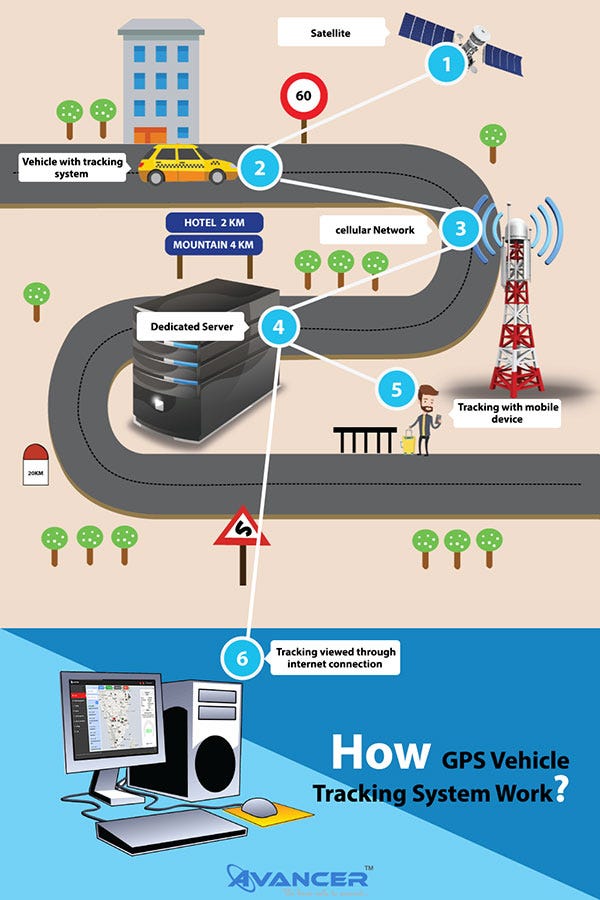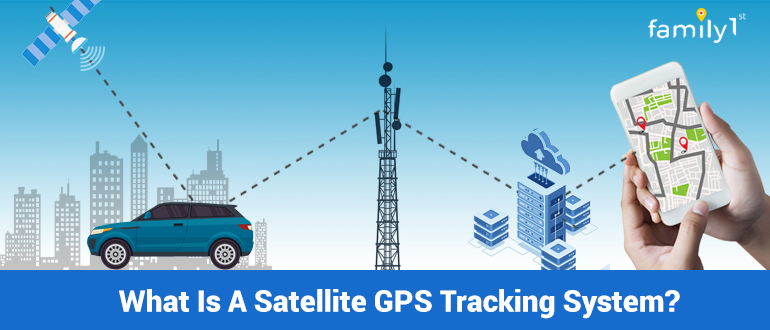Comprehensive Overview to GPS Tracking: Enhance Safety and Effectiveness
Comprehensive Overview to GPS Tracking: Enhance Safety and Effectiveness
Blog Article
Maximizing Efficiency With GPS Tracking: Approaches for Fleet Monitoring and Property Tracking
In the world of fleet management and property monitoring, the usage of GPS tracking systems has actually come to be a keystone for enhancing operational performance and productivity. As we check out the numerous techniques and techniques to take full advantage of effectiveness with GPS monitoring, a globe of opportunities opens up to redefine exactly how organizations manage their fleets and check their possessions.
Applying Real-Time Tracking Equipments
To make the most of functional effectiveness, business can implement real-time tracking systems that give prompt place information for their assets. By making use of GPS innovation, companies can obtain real-time understandings into the whereabouts of their lorries, devices, and various other beneficial resources. This degree of exposure permits firms to improve operations, improve productivity, and enhance total performance.
Real-time radar supply numerous advantages for business throughout numerous industries. With the capability to monitor assets constantly, organizations can enhance transmitting, routine maintenance better, and reduce the threat of burglary or loss. These systems make it possible for businesses to respond immediately to any unexpected occasions or disturbances, making certain very little downtime and optimum efficiency.
Implementing real-time radar requires mindful planning and consideration of details company needs. Business need to choose the ideal technology provider, customize the system to fulfill their demands, and offer adequate training to workers. By buying real-time monitoring remedies, services can remain ahead of the competitors, deliver exceptional customer support, and accomplish lasting growth in today's busy market environment.
Optimizing Course Planning and Scheduling

One key strategy for enhancing course planning is to make use of historical data and real-time information to identify one of the most efficient courses for lorries. By examining past courses and considering elements such as website traffic patterns and delivery home windows, services can produce timetables that reduce unnecessary stops and delays. Additionally, executing dynamic routing capabilities permits adjustments to be made in real-time based upon altering problems, ensuring that motorists constantly take one of the most efficient course to their location.
Enhancing Driver Performance and Security
Enhancing motorist efficiency and safety is critical in making certain the smooth and protected operation of a fleet. By utilizing GPS monitoring innovation, fleet managers can keep track of driver actions in real-time and offer immediate feedback to promote secure driving practices. This consists of monitoring speed limitations, rough stopping, acceleration patterns, and adherence to web traffic guidelines.
In addition, general practitioner tracking systems can help in recognizing vehicle drivers that might need added training or support to enhance their efficiency (gps tracking). By analyzing information on driving routines and patterns, fleet supervisors can implement targeted training programs to attend to particular locations of improvement. This aggressive strategy not only boosts total chauffeur efficiency yet likewise adds to a safer workplace for everybody included
Along with efficiency tracking, general practitioner radar can likewise boost chauffeur safety by offering emergency situation aid functions. In the event of a crash or breakdown, drivers can promptly send call for help, allowing fleet managers to react promptly and send off help when needed. Overall, incorporating GPS tracking technology into fleet management strategies is essential for enhancing driver efficiency and making sure the safety of both assets and motorists.

Making Use Of Geofencing for Improved Safety And Security
Making best use of fleet safety and security exceeds keeping track of driver efficiency and safety; one reliable method is via the critical use of geofencing innovation. Geofencing allows fleet managers to establish online borders or geozones around details places, allowing them to get real-time alerts when vehicles get in or leave these marked locations. By setting up geofences around risky places such as construction websites, unapproved areas, or also consumer areas, fleet managers can enhance protection actions and mitigate potential risks.
Geofencing not just boosts safety and security but also allows fast feedback times in instance of unapproved automobile usage or theft. In case of a breach, signals can be sent to fleet supervisors, allowing them to take prompt activity to recover the automobile and situate. In addition, geofencing can assist in monitoring car movement during off-hours, making sure that automobiles are not being utilized for unapproved functions.
Incorporating GPS Information for Strategic Decision-Making
Making use of GPS data combination is vital for informed critical decision-making in fleet management procedures. By incorporating GPS data into fleet management systems, organizations can obtain beneficial understandings into their operations, resulting More about the author in a lot more effective courses, improved motorist habits, and better general efficiency. Via the combination of GPS information, fleet supervisors can track lorry locations in real-time, screen gas consumption, and analyze chauffeur efficiency metrics such as speed, idling time, and extreme braking.
Moreover, integrating GPS data permits the optimization of courses based on traffic conditions, weather patterns, and various other exterior elements, aiding to minimize shipment times and operational expenses. By analyzing historical GPS information, fleet managers can determine fads, patterns, and locations for improvement, allowing them to make data-driven decisions that enhance efficiency and enhance operations.
Conclusion
To conclude, the application of GPS radar can significantly improve efficiency in fleet management and asset surveillance. By utilizing real-time tracking, maximizing path preparation, improving motorist performance, using geofencing for security, and integrating GPS data for strategic decision-making, companies can accomplish and improve procedures cost financial savings (gps tracking). These methods enable organizations to enhance processes, increase performance, click for more info and inevitably make best use of the general effectiveness of their operations
In the realm of fleet monitoring and asset tracking, the utilization of GPS tracking systems has actually come to be a keystone for improving operational effectiveness and efficiency. As we check out the various methods and strategies to make best use of effectiveness with General practitioner tracking, a world of possibilities opens up to redefine how organizations handle their fleets and monitor their properties.
By utilizing General practitioner monitoring innovation, fleet managers can keep track of driver actions in real-time and give prompt feedback to promote risk-free driving techniques. Via the integration of GPS information, fleet supervisors can track lorry areas in real-time, monitor fuel consumption, and examine vehicle driver performance i was reading this metrics such as speed, idling time, and rough braking.
In conclusion, the execution of GPS monitoring systems can considerably enhance performance in fleet management and asset surveillance.
Report this page